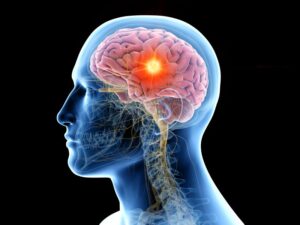How Can Sleep Apnea Affect Your Brain?
October 14, 2024

Your brain is a remarkable creation. It is at the center of all you think, feel, do, and experience. As wonderful as it is, though, it is also somewhat fragile. It is susceptible to various kinds of damage. Its health can even be negatively affected by obstructive sleep apnea (OSA). Just what is the connection between OSA and brain health, and what can you do to protect yourself? This blog post provides some fascinating information.
Sleep Apnea and Cognitive Decline
There is a growing body of research that links OSA and cognitive decline. For example:
- Individuals with sleep apnea seem to have trouble converting short-term memories into long-term ones. This may be because they do not spend adequate time in the deeper stages of sleep.
- Alzheimer’s disease patients are five times more likely to have OSA than people of the same age without Alzheimer’s.
- People with sleep apnea are diagnosed 10 years earlier on average with mild cognitive decline.
- Research indicates that sleep apnea can decrease the amount of gray and white matter in the brain. Both of these types of tissue are important in cognition.
Protecting Your Brain Health
Clearly, sleep is vital for brain health! Unfortunately, OSA can rob you of the rest you need to function at your best. The good news is that OSA is highly treatable. In fact, some research indicates that consistent use of sleep apnea treatment can help to restore lost gray and white matter. Studies also suggest that after a year of treatment, patients often experience significant improvements in memory and attention. It may have the additional benefit of slowing down cognitive decline in older individuals.
The most common form of treatment for OSA is a CPAP machine, but patients often struggle to use their machine consistently. In contrast, oral appliance therapy has higher compliance rates because it is more comfortable and more convenient. A qualified sleep expert can help you weigh the pros and cons of each option.
Other steps that can promote high-quality sleep and support your brain health include:
- Not drinking alcohol too close to bedtime.
- Eating a balanced diet and getting enough physical activity.
- Maintaining a clean and comfortable sleeping environment.
- Using stress management techniques during challenging times.
Do not let OSA damage your brain! Seek appropriate care so you can start getting the rest you need to feel and function your best.
Meet the Practice
Dr. Ivan Paskalev is a current member of the American Academy of Dental Sleep Medicine. As an experienced sleep dentist, he has already helped countless patients enjoy improved sleep and overall health via oral appliance therapy. If you would like to learn more about this treatment option, he and our team would be happy to speak with you. Contact Better Sleep Eugene at 541-246-8284.

